
No one wants to appear before a judge as a criminal defendant. But court is a particularly inhospitable place for Donald Trump, who conceptualizes the value of truth only in terms of whether it is convenient to him. His approach to the world is paradigmatic of what the late philosopher Harry Frankfurt defined as bullshit. Trump doesn't merely obscure the truth through strategic lies, but rather speaks without any regard for how things really are." This is at odds with the nature of law, a system carefully designed to evaluate arguments on the basis of something ather than because I say so. The bullshitter is fundamentally, as Frankfurt writes, "trying to get away with something"-while law establishes meaning and imposes consequence.
The upcoming trials of Trump-in Manhattan; Atlanta; South Florida; and Washington, D.C.-will not be the first time he encounters this dynamic. His claims of 2020 election fraud floundered before judges, resulting in a series of almost unmitigated losses. In one ruling that censured and fined a team of Trump-aligned lawyers who had pursued spurious fraud allegations, a federal judge in Michigan made the point bluntly. "While there are many arenas including print, tele sion, and social media where protestations, conjecture, and speculation may be advanced," she wrote, "such expressions are neither permitted nor welcomed in a court of law."
But only now is Trump himself appearing as a criminal defendant, stripped of the authority and protections of the presidency, before judges with the power to impose a prison sentence. The very first paragraph of the Georgia indictment marks this shift in power. Contrary to everything that Trump has tried so desperately to prove, the indictment asserts that "Trump lost the United States presidential election held on November 3, 2020"-and then actively sought to subvert it.
This story is from the October 2023 edition of The Atlantic.
Start your 7-day Magzter GOLD free trial to access thousands of curated premium stories, and 9,000+ magazines and newspapers.
Already a subscriber ? Sign In
This story is from the October 2023 edition of The Atlantic.
Start your 7-day Magzter GOLD free trial to access thousands of curated premium stories, and 9,000+ magazines and newspapers.
Already a subscriber? Sign In

Apocalypse, Constantly
Humans love to imagine their own demise.

A Palestinian American Sex and the City
Betty Shamieh's debut novel is a rebellious rom-com.
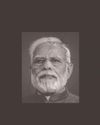
Modi's Failure
Why India is losing faith in its strongman leader
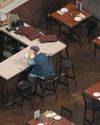
The Anti-Social Century
Americans are now spending more time alone than ever. It's changing our personalities, our politics, and even our relationship to reality.

The Wild Charity of Saint Francis
The guide we need, now that kindness is countercultural
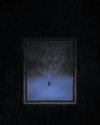
Where Han Kang's Nightmares Come From
In her novels, the South Korean Nobel laureate returns again and again to her countrys bloody past.
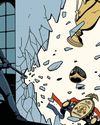
TROPHY HUNTERS
A GROUP OF CHILDHOOD FRIENDS PULLED OFF A STRING OF THE MOST AUDACIOUS SPORTS-MEMORABILIA HEISTS IN AMERICAN HISTORY. THEN THEY DID SOMETHING REALLY CRAZY.

THE NEW RASPUTINS
Anti-science mysticism is enabling autocracy around the globe.
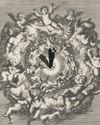
ARMY OF GOD
AMERICAN CHRISTIANS ARE EMBRACING A CHARISMATIC MOVEMENT KNOWN AS THE NEW APOSTOLIC REFORMATION, WHICH SEEKS TO DESTROY THE SECULAR STATE. Now THEIR WAR BEGINS.

WHAT NOT TO WEAR
The false promise of seasonal-color analysis